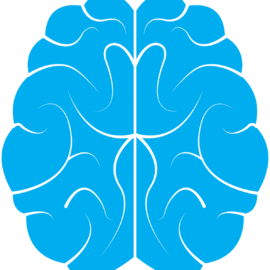(Read updated research on how brain training can help prevent Alzheimer’s and dementia here)
Study proves that brain training improves processing speed, memory, and reasoning ability.
According to a federally sponsored trial of almost 3,000 older adults, called the Advanced Cognitive Training for Independent and Vital Elderly, or ACTIVE, study, a brief course of brain exercises helped to maintain improvements in reasoning skills and processing speed ten years after the course ended.
The ACTIVE study, the largest study ever done on cognitive training, looked at how three brain training programs — designed to bolster specific cognitive abilities including processing speed, memory, and reasoning ability — affected cognitively normal adults as they aged.
 About the Study:
About the Study:
At the start of the trial, all 2,832 of the older adult participants were cognitively normal. The average age when they started the training was 74. The participants divided into four groups. The groups consisted of three training groups and a control group of volunteers. The control group of volunteers came in for regular testing to see how they were fairing with age.
Participants in the three training groups trained 10 to 12 sessions, 60 to 75 minutes each session, over several weeks. About 60 percent of the volunteers who underwent training also got booster training sessions, which enhanced the initial benefits.
Strategies to improve cognitive performance were a part of the training. This included identifying patterns, sequences, and main ideas.
The Results:
Of those trained in reasoning strategies, 73.6 percent of participants still performed above their pre-trial baseline level, compared with 61.7 percent of those who received no training and were only benefiting from practice on the test.
The effect was even more significant in processing speed. Among the training group, 70.7 percent of participants were performing at or above their baseline level, compared with 48.8 percent of those in the control group. There was no difference in memory performance between the memory group and the control group after ten years.
All participants received tests immediately after the training and again one, two, three, five, and ten years later. At the end of the trial, all groups showed declines compared with their initial baseline tests in memory, reasoning, and processing speed. Still, those who participated in the training experienced less. After five years, researchers found, those with the training performed better than their untrained counterparts in all three measures.
The brain exercises not only helped improve processing speed, memory, and reasoning ability but made daily life easier as well. Participants in the training self-reported improvements in daily function. They said they had an easier time with tasks like managing medications, cooking meals, and handling finances.
Even small improvements in an older person’s ability to perform everyday tasks would likely ease the burden on caregivers and health care providers. This improvement can help curb healthcare costs and delay entry into nursing homes and hospitals.
What it Means:
Research must still be done to explain WHY cognitive training can have a lasting effect. Does training strengthen the brain in the way that exercising builds muscle? What we do know is that brain exercises helped to maintain improvements in reasoning skills and processing speed even ten years after the course ended.
For the full article visit: NBC News
(Read updated research on how brain training can help prevent Alzheimer’s and dementia here)
read more: Brain training can help older adults stay sharp for years



